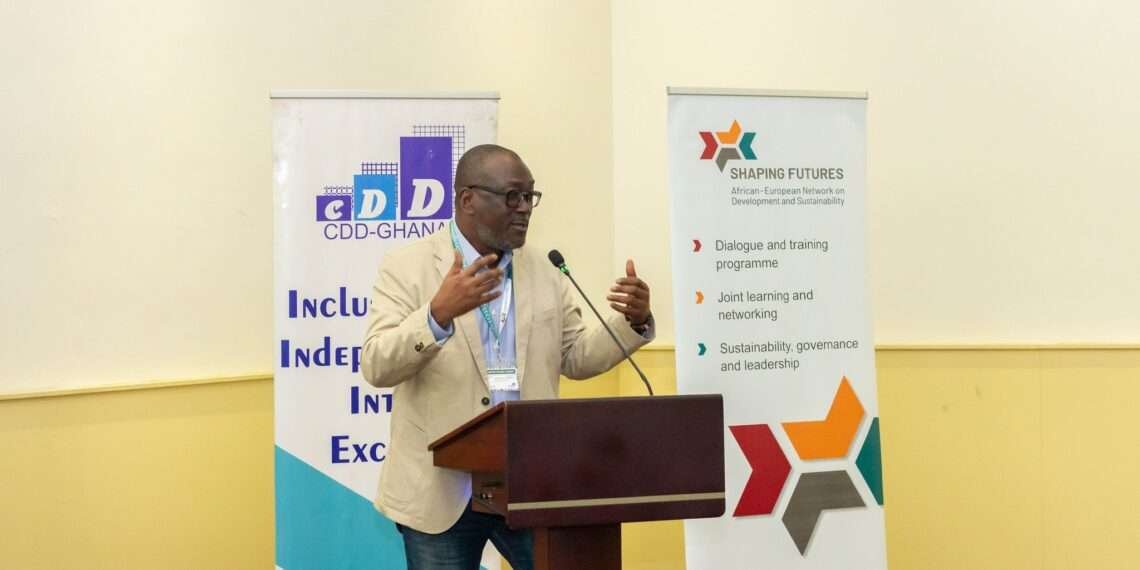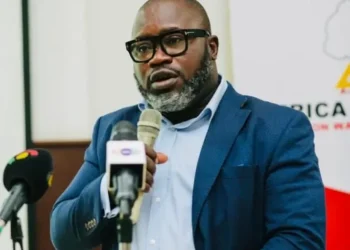Renowned constitutional scholar and Executive Director of the Centre for Democratic Development (CDD-Ghana), Professor H. Kwesi Prempeh, has distilled the outcomes of Ghana’s December 7, 2024, general elections into a profound reflection of 20 lessons.
These insights, sharp and layered with wisdom, provide a lens through which to understand the electoral dynamics, voter behaviour, and the broader political landscape in Ghana.
He began by stating “Money Can’t Buy Love Or, you got played!”, emphasizing that while money plays a significant role in Ghanaian politics, its influence has limits, insinuating that voters can take financial inducements but may still reject candidates whose policies or attitudes they dislike.
Highlighting the pitfalls of arrogance, Prof. Premepeh noted that the elections demonstrated that overconfidence is often a precursor to defeat in the competitive realm of politics.
“There is a little Kwaku Ananse in every Ghanaian voter,” Professor Prempeh remarked, arguing that voters have become adept at outsmarting politicians, repaying deception with deception and insincerity with insincerity.
The renowned civil society leader further indicated that Ghanaians are deeply sensitive to how leaders communicate. “Mind your language and attitude; we don’t like being insulted or disrespected,” he said, adding that respectful engagement can mean the difference between victory and defeat.
Power is Not Knowledge—or Wisdom
Also, Prof. Kwesi Prempeh noted that the elections underscore that holding power does not necessarily equate to being wise or knowledgeable, insinuating that leadership requires more than positional authority.
He, in addition, posited that an attractive candidate or policy can be rendered unappealing by association with a damaged brand or untrustworthy political team.
“Don’t believe your own hype,” warned, Professor Prempeh, implying that over-reliance on sycophantic support within echo chambers blinds political actors to the realities on the ground.
Partisan Voters are a Minority
Referencing Afrobarometer data, he noted that Ghana’s electorate is increasingly independent-minded, with diehard partisan voters becoming a minority.
Prof. Kwesi Prempeh cautioned against relying solely on legal victories, saying “Cheap victories in the court of law would cost you more significant victories in the court of public opinion.”
He also argued that while economic issues remain crucial, good governance and respect for citizens’ needs are equally decisive factors in elections.
Referencing his own 2019 assertion, “Free SHS is like the blood of Jesus that wipes away all sins,” he concluded that this assumption no longer holds sway.
Moreover, Prof. Kwesi Prempeh pointed out that discounting empirical data—whether from Afrobarometer or pollsters like Mussa Dankwah, the Executive Director of Global InfoAnalytics is a perilous gamble.
All Politics Is Personal
Here, Professor Kwesi Prempeh strongly asserted that Ghanaians vote based on how policies affect their personal lives and livelihoods, emphasizing the mantra “Hwɛ w’a setena mu.”
He also noted that scare campaigns fail to resonate with voters who feel they have little to lose, saying “The alternative is always scary for some, merry for others, and the same for the rest of us”. reflecting the diversity in perceptions of the “alternative.”
“Don’t seek power in humility and govern in arrogance,” Prof. Kwesi Prempeh warned, pointing to the need for consistent humility in leadership. He also remarked that the desire for a reset was a key voter sentiment in this election.
Breaking the Eight Requires Excellence
Summing up his remarks, the Executive Director of the Centre for Democratic Development strongly asserted that breaking the two-term limit is reserved for governments that perform exceptionally, saying “Thus far, no one qualifies!”
He further noted that the opinions of neutral observers carry more weight than partisan communicators, a stark reality for political strategists, adding that political parties aiming to refresh their image must aim higher, avoiding superficial or regressive branding exercises.
Finally, Prof. Prempeh contended that while Accra is not Ghana, its dynamics closely mirror the pulse of the nation more than any other region.
Professor H. Kwesi Prempeh’s reflections offer rich lessons for political actors and analysts alike. From humility and respect to strategic branding and governance, these insights resonate beyond Ghana, serving as a blueprint for democratic maturity in Africa and beyond.
As the political dust settles, the real challenge lies in how political actors assimilate these lessons and make goo use ot them for the future.
READ ALSO: Agriculture Stakeholders Congratulate President-Elect John Dramani Mahama























